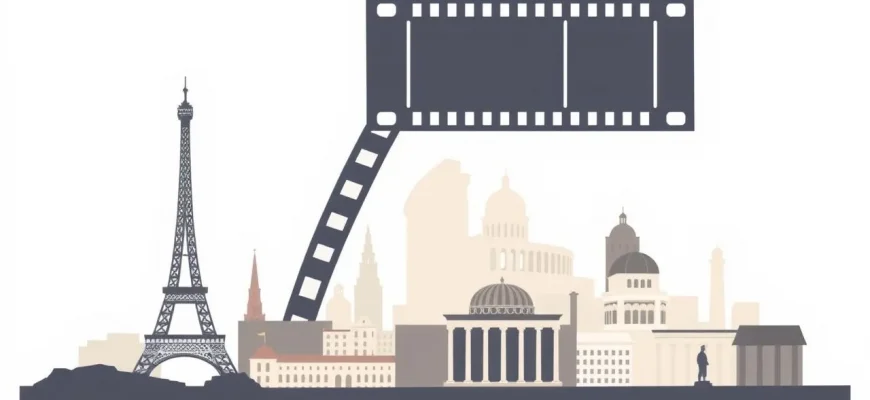Embark on a cinematic journey through the heart of Europe with these ten drama films. Each movie not only tells a compelling story but also delves deep into the cultural nuances, historical contexts, and societal issues of various European countries. Whether it's the exploration of identity, the clash of traditions, or the celebration of heritage, these films offer a window into the soul of Europe, providing both entertainment and education for those eager to understand the continent's diverse cultural landscape.

Amélie (2001)
Description: Set in Paris, this whimsical film captures the essence of French culture through the eyes of Amélie, a young woman who decides to change the lives of those around her for the better, reflecting the French joie de vivre.
Fact: The film's director, Jean-Pierre Jeunet, used a unique color palette to give the film its distinctive visual style, and it was nominated for five Academy Awards.
 Watch Now
Watch Now 
The Diving Bell and the Butterfly (2007)
Description: Based on a true story, this French film tells the story of Jean-Dominique Bauby, who suffers a stroke and must adapt to life with locked-in syndrome, showcasing the resilience of the human spirit and French cultural attitudes towards disability.
Fact: The film was shot from the perspective of Bauby, with the camera often representing his limited field of vision.
 Watch Now
Watch Now 
The Lives of Others (2006)
Description: This German film offers a poignant look at life under the Stasi surveillance in East Germany, exploring themes of privacy, freedom, and the human spirit's resilience. It's a must-watch for understanding the cultural and political climate of the time.
Fact: The film won the Academy Award for Best Foreign Language Film in 2007, and it was Ulrich Mühe's last major role before his death.
 Watch Now
Watch Now 
The Secret in Their Eyes (2009)
Description: An Argentine film that delves into themes of justice, memory, and love, set against the backdrop of Argentina's political turmoil, offering a deep dive into South American culture from a European perspective.
Fact: It won the Academy Award for Best Foreign Language Film, and the film's title refers to the idea that eyes reveal the truth.
 Watch Now
Watch Now 
The King's Speech (2010)
Description: While not exclusively European, this British film focuses on King George VI's struggle with his stutter, reflecting on British culture, monarchy, and the pressures of public life.
Fact: Colin Firth won the Best Actor Oscar for his portrayal of King George VI, and the film also won Best Picture.
 Watch Now
Watch Now 
The Intouchables (2011)
Description: This French film explores the unlikely friendship between a wealthy aristocrat and his Senegalese caregiver, highlighting issues of class, race, and disability in contemporary French society.
Fact: It became the second highest-grossing non-English language film in the U.S. box office, and the film's soundtrack was also very popular.
 Watch Now
Watch Now 
The Hunt (2012)
Description: This Danish film examines the destructive power of rumor and suspicion in a small community, reflecting on themes of justice, innocence, and the cultural nuances of Scandinavian society.
Fact: Mads Mikkelsen won the Best Actor award at Cannes for his performance, and the film was Denmark's submission for the Best Foreign Language Film at the Oscars.
 Watch Now
Watch Now 
La Dolce Vita (1960)
Description: Federico Fellini's masterpiece captures the decadence and existential ennui of post-war Italy, offering a critique of the Italian dolce vita lifestyle and its impact on society.
Fact: The film coined the term "paparazzi" after the character Paparazzo, a photographer in the movie.
 30 Days Free
30 Days Free 
The Best of Youth (2003)
Description: This Italian epic spans four decades, exploring the lives of two brothers against the backdrop of Italy's cultural and political evolution, offering a comprehensive look at Italian culture.
Fact: The film was originally intended as a TV miniseries but was released as a film due to its length and narrative structure.
 30 Days Free
30 Days Free 
The White Ribbon (2009)
Description: Set in a German village before World War I, this film by Michael Haneke explores the roots of fascism and the strict moral codes of the time, providing a chilling look at German culture and its darker aspects.
Fact: It won the Palme d'Or at Cannes and was nominated for the Best Foreign Language Film at the Oscars.
 30 Days Free
30 Days Free 








